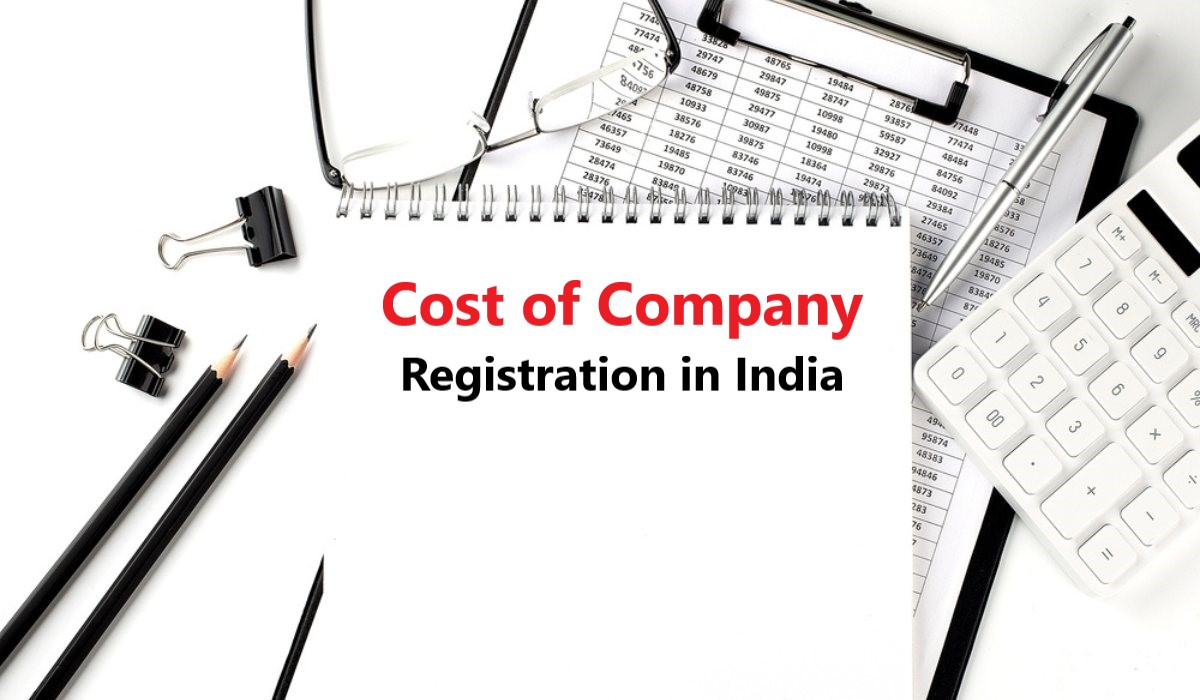Planning, Introducing, and Establishing a brand-new Organization is one of the most vital phases for any entrepreneur. Most of all the individual needs to be ready with all the needed legal needs to release the business on the market. A private minimal business is a business that is independently held for small companies. The liability of the members of a Private Limited Company is restricted to the number of shares respectively held by them. Shares of Private Limited Company can not be publicly traded. Any kind of service can be set up as an exclusive limited company-- for example, a plumbing, beautician, photographer, attorney, dental expert, accountant, or driving teacher. The owners of a personal minimal company are called shareholders.
Private Limited Company is the most leading and popular key in the Indian Market. This sort of company is specifically held for small companies. The financial commitment of the participants of a Private Limited Company is fixed and it totally relies on the number of shares individually held by them.
The enrollment procedure of a Private Limited Company is governed by the Companies Act, 2013, and Companies Incorporation Rules, 2014 in India. You need a minimum of two supervisors and two investors to register a private limited business.
The Expense to register a Private Limited Company in India would certainly vary from INR 6,000/- to INR 30,000/- relying on the No. of Directors, No. of members, accredited share resources, and Professional charges. Specialist charges may rely on the complexity of the task. A private limited company needs to have and keep a minimum paid-up capital of Rs. 1 lakh. It could go higher, as recommended by MCA periodically.
Registering up an exclusive limited company is not a huge task if you have actually all the required papers legally. The process of enrollment has undertaken some major adjustments and made really basic. Business owners that are willing to launch and develop companies can make it hassle-free now. Simply have a look at this short article to get rid of all your doubts concerning the enrollment procedure, the files needed, and the Fees to register a Private Limited Company in India.
What are the Factors Influencing Company Registration Cost in India?
Type of Company
The kind of company you select to register plays a considerable function in establishing its registration fees. Each type of company, such as a personal restricted company, public restricted company, or one-person company, has particular requirements and compliance responsibilities for incorporation. For instance, an exclusive minimal business may have a higher enrollment costs compared to a one-person company due to additional legal needs, such as, consultation of added supervisors, confessing added investors, composing extra papers, and so on.
Stage of Company Incorporation
The stage of unification at which your business is can also impact the general expense of enrollment. Pre-registration costs consist of name reservation, drafting the Memorandum of Association and Articles of Organization, and getting various other needed documents like hullabaloo and DSC of marketers. When this phase is surpassed, we have prices of submitting the application and submitting the documents to the ROC. Also after enrollment, post-registration prices like acquiring, PAN, TAN, and different other tax obligations and work regulation registrations are incurred.
State of Incorporation
The state in which you pick to integrate your business can impact the registration fees and overall expense also. Various states in India have different fee frameworks, stamp task costs, and conformity prices applicable. So, it is essential to think about the state-specific demands while approximating the overall cost of registering a company in India for your start-up.
Requirement for Professional Services
Involving legal and specialist services is crucial for a smooth company registration process. The specialist fees charged by lawyers, chartered accountants, or company assistants for integrating your company can differ based on their expertise and experience, as well as the complexity of the procedure. It is suggested to research, study and contrast the fees billed by various experts to guarantee you are supplied top quality solutions at an affordable cost.
Additional Requirements
Besides the main costs involved like the registration charge and specialist costs, there might be additional expenditures like costs for hubbub, name reservation, digital trademark certificates, notary stamp, stamp duty, and other subordinate fees. For example, acquiring digital signature certifications (DSC) of promoters are needed for validating the Company Registration form. In a similar way, all directors of the company are called for to pay the charges to acquire their DIN prior to company unification.
What are the Different Stages in Company Registration Cost?
Registering a company entails several stages, each with its very own set of demands and linked expenses. Let's go through the various phases of company incorporation and highlight the points where prices are usually sustained:
Paying DIN and DSC Fees
The primary step is to acquire a Director Identification Number (DIN) for all the recommended supervisors of the business. This is done by submitting an application with the Ministry of Corporate Matters (MCA). Furthermore, a Digital Trademark Certification (DSC) is needed for on the internet filing of documents. If you're at this phase, you need to spend the prescribed amounts charged in acquiring DIN and DSC from the corresponding authorities.
Drafting and Paying Stamp Duty for MOA and AOA
The next phase includes composing the Memorandum of Organization (MOA) and Articles of Organization (AOA), which are important files defining the company's objectives, regulations, and regulations. As soon as composed, the files need to be stamped by a public notary for which stamp responsibility charges and notary charges applicable in the state will certainly need to be paid.
Application & Document Filing Fee
After the MOA and AOA are ready, the following step is to file an application for business incorporation with the Registrar of Business (RoC). In addition to the application, specific documents need to be connected in their electronic layouts. At this phase, the application Fees for Company Registration will certainly have to be paid, which will certainly be based upon Authorized resources of the company.
Post-Incorporation Compliance Fees
After the business is signed up, certain post-incorporation conformity requirements are required to be met. This consists of acquiring a Permanent Account Number (PAN), Tax Deduction and Collection Account Number (TAN), and Goods and Solutions Tax (GST) enrollment, if relevant.
Cost of Opening a Bank Account
Finally, the company needs to open up a bank account in its name. While this phase does not sustain any government cost, it deserves keeping in mind that there might be fees connected with opening and preserving the checking account, such as minimum balance demands or transaction costs
Key points Involved in Cost of Registering a Company in India
1. Office Address
Having a workplace is the most vital point if you are intending to register your business. You can choose one of the following alternatives for your workplace address:
2. Home Address
You can obtain your business registration from the ease of your home without buying/renting an office space. Registering a company from home can conserve you a great deal of cash however it might lack expertise of your organization.
3. Buy/Rent an Office
You can likewise rent/buy an office, the typical expense of renting/buying and workplace in India is approx:
Prime Locations (Tier 1 cities like Mumbai, Delhi, Bangalore):
Small Office (500-1,000 sq ft): ₹100,000 - ₹250,000 per month
Medium Office (1,000-2,500 sq ft): ₹250,000 - ₹625,000 per month
Large Office (2,500-5,000 sq ft): ₹625,000 - ₹1,250,000 per month
Tier 2 and Tier 3 Cities:
Small Office (500-1,000 sq ft): ₹20,000 - ₹100,000 per month
Medium Office (1,000-2,500 sq ft): ₹50,000 - ₹250,000 per month
Large Office (2,500-5,000 sq ft): ₹125,000 - ₹500,000 per month
4. Digital Signature Certificate (DSC)
Every proposed director of the company requires a Digital Signature Certification (DSC) to authorize digital files. The cost of getting a DSC ranges from INR 1,000 to INR 2,000 each.
5. Supervisor Identification Number (DIN)
A DIN is needed for every director of the company. The price of making an application for a hubbub is roughly INR 500 per director.
6. Name Approval
You need to obtain the recommended name of your business approved by the Registrar of Companies (RoC). The price for name authorization is around INR 1,000. If the name is turned down and you need to reapply, added fees will apply.
7. Stamp Duty and MoA/AoA
Stamp duty is levied on the incorporation papers, i.e., the Memorandum of Association (MoA) and Articles of Association (AoA). The stamp obligation fees differ from state to state but usually range between INR 1,000 and INR 2,000.
8. Enrollment Costs
The registration fee depends on the company's authorized resources. The charges framework adheres to:.
- For authorized capital up to INR 1,00,000: INR 4,000.
- For certified funding above INR 1,00,000: Added costs apply based on the piece price defined by the MCA.
9. Professional Charges
If you opt to hire experts like Chartered Accountants (CAs), Business Secretaries (CSs), or attorneys for assistance with the enrollment process, their fees can range from INR 5,000 to INR 20,000, depending upon the complexity of the work and the professional's experience.
10. PAN and TAN.
Acquiring a PAN and TAN for the business is necessary and typically sustains a small expense of around INR 200 each.
11. Additional Expenses
There might be added incidental prices such as notarization, printing, and messenger costs, which can amount to INR 1,000 to INR 2,000.
Overall Estimated Price.
Summing up the above expenditures, the complete expense of signing up a Private Limited Company in India generally varies between INR 12,000 to INR 30,000. This estimate can vary based upon detailed situations, such as the state of incorporation and the specialist charges.
Professional Fees of Company Registration Consultant:
Having recognized three price elements such as the price connected with the DSC, the fee of company incorporation imposed by the ROC and the particular stamp obligation by the state government where the company shall have their authorized workplace, let us recognize the fee that an expert charges to aid you incorporate a company.
The cost charged by the consultant will certainly differ on a situation to case basis. In contrast, typical specialist companies charge a large total up to assist in the incorporation of a company in India. Online service providers like Start an Idea have actually revolutionized the means companies are included and offer their solutions at a really affordable fee.
Benefits of Registering a Private Limited Company in India
There are lots of advantages to signing up a private minimal company in India. Some of the vital benefits consist of:.
- Limited liability: Investors of a private minimal business are just responsible for the financial obligations of the company up to the amount of their investment. This means that your personal assets are safeguarded on the occasion that the company goes bankrupt.
- Tax benefits: Personal restricted companies undergo a reduced tax rate than other types of business in India. This can conserve you cash on your tax obligations.
- Ability to Raise Capital: Private limited businesses are able to elevate resources from investors through the issue of shares. This can help you to fund your organization's growth.
Conclusion
Registering a company in India involves various costs, from getting necessary qualifications to paying enrollment costs. By comprehending these expenditures and discovering cost-effective solutions like digital offices, entrepreneurs can better handle their funds and set their businesses on a path to success.
Utilizing an online workplace not just decreases enrollment and functional expenses however also provides the adaptability needed in today's vibrant service atmosphere. As you embark on your entrepreneurial journey, take into consideration these variables to make educated decisions that straighten with your business goals and budget plan.
While the preliminary costs of registering a company in India can appear overwhelming, strategic preparation and modern remedies like digital offices can substantially alleviate the financial burden, leading the way for a successful business endeavor.






